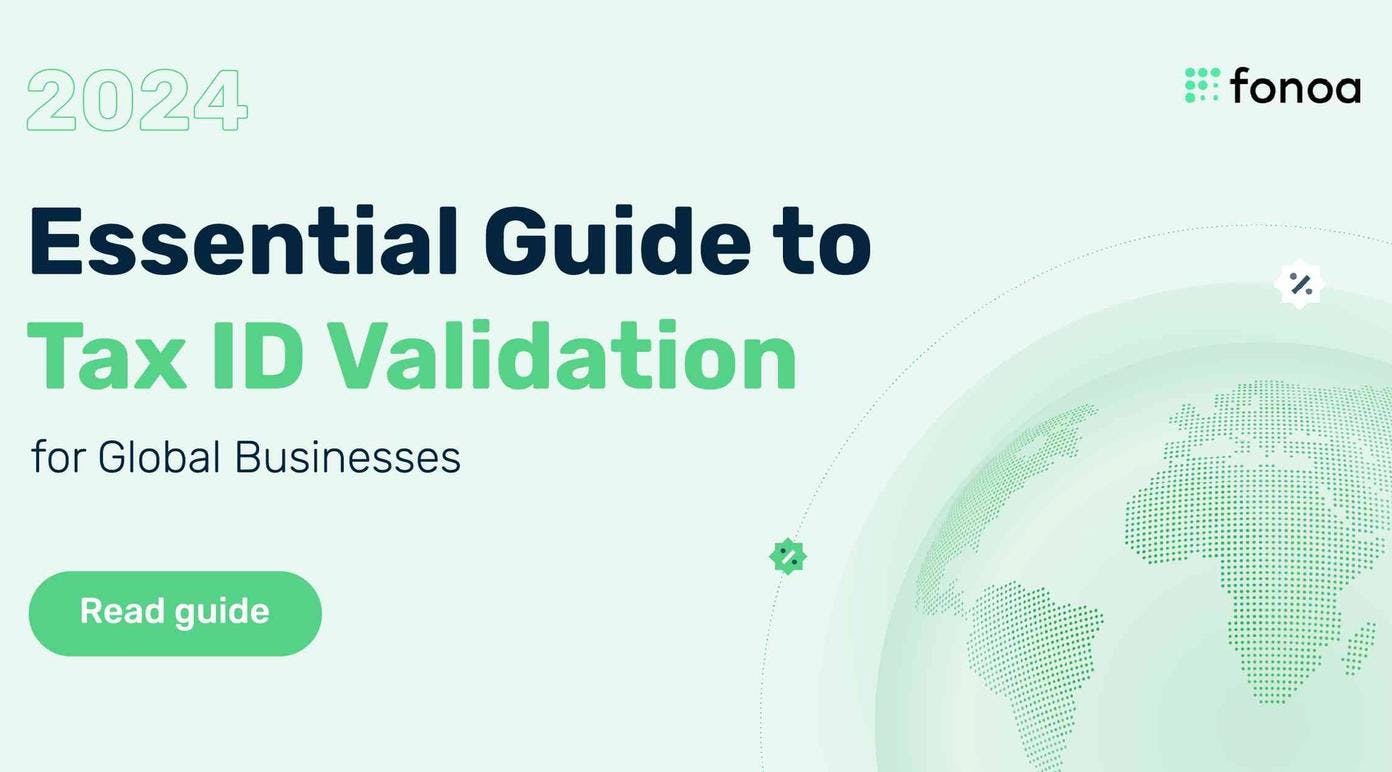Essential Guide to Tax ID Validation

What is this guide about?
Unlock the full scope of our latest gated content piece! This comprehensive guide extends beyond the boundaries of the EU and the VIES portal, offering insights into a wide array of topics beyond indirect taxes.
In today's ever-evolving tax landscape, TIN validation has transcended its origins in Europe, VAT and VIES. With new tax and reporting requirements emerging annually, businesses face a diverse range of obligations. From the global surge in Digital Reporting Requirements (often termed e-invoicing) to regulations like DAC7, impacting Digital Platforms and Marketplaces, the terrain of tax compliance is constantly shifting.
Tax number validation has emerged as a pivotal step for multinational enterprises navigating this complex terrain. While our guide primarily addresses challenges encountered by digital-first businesses in sectors such as SaaS, direct-to-consumer electronic services, and Digital Platforms facilitating buyer-seller connections, its insights resonate across industries.
Whether you're a tax professional, product developer, or tech enthusiast, the topics covered in this guide offer valuable perspectives. Dive into the intricacies of tax compliance and explore the nuances of TIN validation—a must-read for anyone involved in building or acquiring TIN validation solutions.
Unlock the knowledge today and stay ahead in the dynamic world of tax compliance!
Unlock the power of Tax ID validation
Why do companies need to validate Tax IDs? How can companies validate Tax IDs globally and at scale? Our comprehensive guide holds the key to these critical questions and more.
By filling out the form below and downloading our guide, you'll gain access to invaluable insights into Tax ID validations. Discover why it's essential for companies to ensure the accuracy and compliance of Tax IDs, and learn effective strategies for conducting validations on a global scale.


